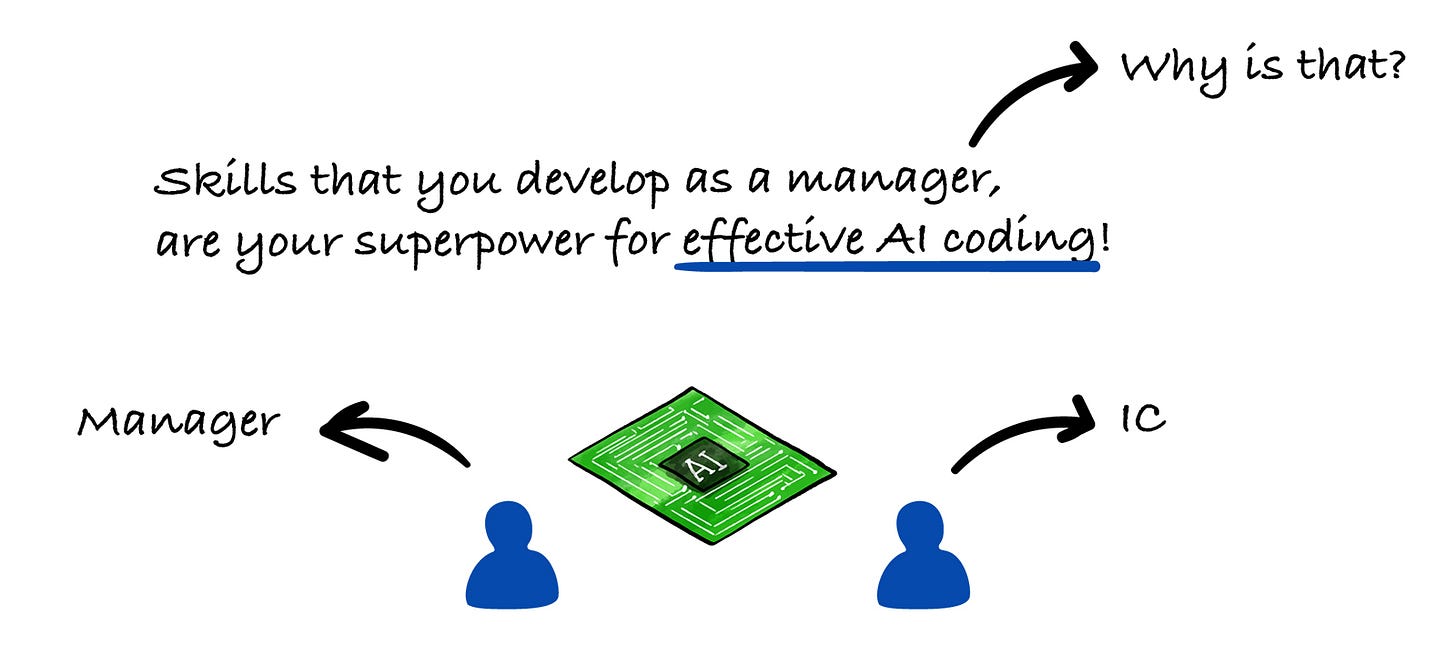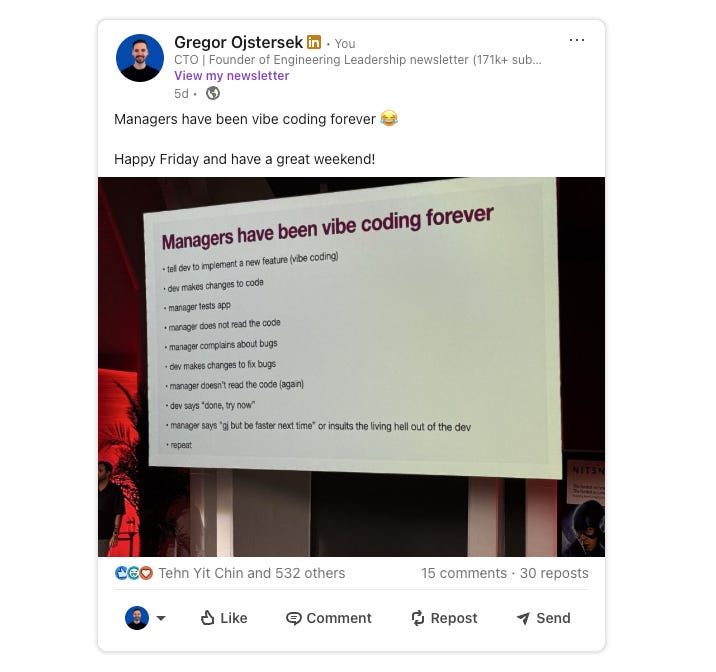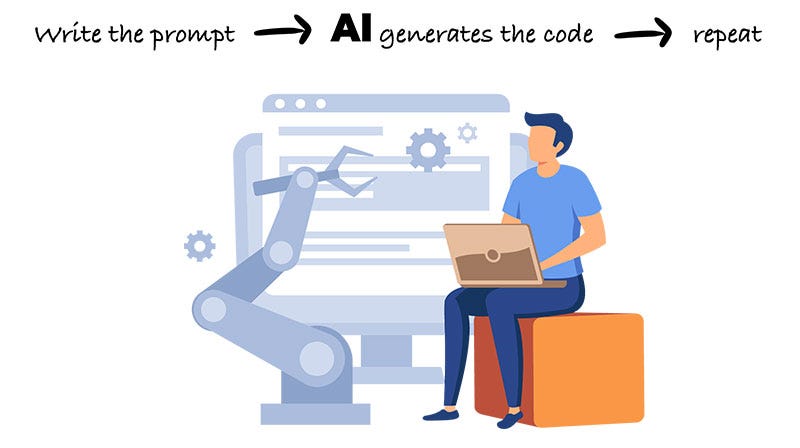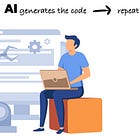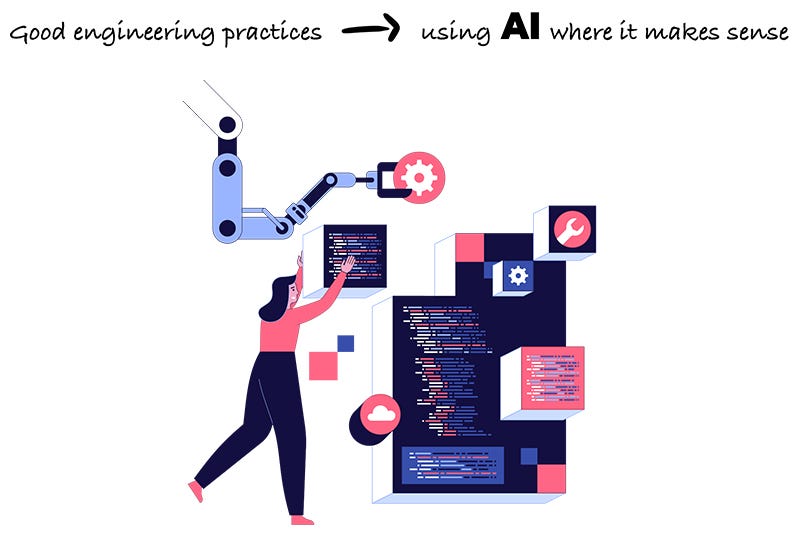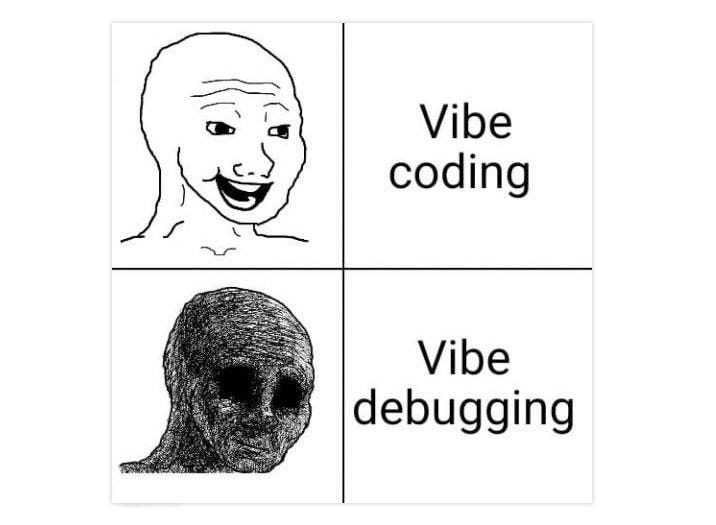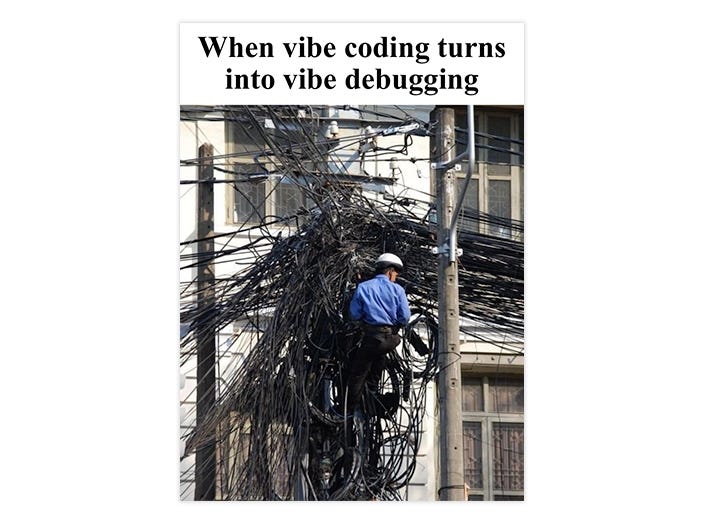Managers Have the Right Skills for AI Coding, While ICs Have Issues
These are the set of skills that help managers do well in coding with AI!
Intro
There’s a lot of talk across the industry about managers being more involved in coding these days. And yes, that is the trend that I have also mentioned in the article: How AI is Impacting Engineering Leadership.
And already predicted in the article back at the beginning of this year: Become a Great Engineering Leader in 2025.
But what if I tell you that, as a manager, that’s a great thing for you? Right, you read that correctly.
With tools getting better and better and more sophisticated, the way we write code these days and create software has changed. Using AI for coding has become the norm.
And this change has been made in a way that fits the skillset of managers. How? Make sure to read on!
This is an article for paid subscribers, and here is the full index:
- A Difference Between a Good Manager and a Bad One is Vibe Coding?
- Vibe Coding vs AI-Assisted Engineering
- Complaints About AI for Coding Normally Come From ICs
🔒 Why Do Managers Have the Right Skills for AI Coding?
🔒 Managers Are Built for the AI Era
🔒 So, What to Do as an IC to Improve in AI-Assisted Engineering?
🔒 Last words
Let’s first start with a picture that I find hilarious!
A Difference Between a Good Manager and a Bad One is Vibe Coding?
Last week, I published this LinkedIn post:
I find this picture to be hilarious for two reasons:
I really love the phrasing on slides, as it’s satirical to the manager role :)
It also explains what vibe coding is in the context of a manager that’s not actually a good manager, but what a lot of people perceive a manager to do.
So, with that in mind, we could say and make the connections of the following:
A bad manager equals to vibe coding.
A good manager equals to AI-assisted engineering.
We’ll go through the difference between vibe coding and AI-assisted engineering in a second, but the point I want to get across is the following:
A bad manager just does things and hopes for the best, blames, and also criticises. But a good manager intentionally uses the processes, methods, and tools that are available, and when they make sense.
Now, let’s get to the difference between vibe coding and AI-assisted engineering.
Vibe Coding vs AI-Assisted Engineering
Let’s first start with vibe coding.
What actually does vibe coding mean?
There are several ways we could frame this, and different people might refer to it differently, but it ultimately means the following:
Vibe coding is a way to create software by using plain English via prompts to an LLM, and it returns the code needed for the desired behavior of that software.
You don’t check the code that is created, and you just rely on AI to make the right decisions.
You can read more about vibe coding in this article:
What about AI-assisted engineering?
The difference may sound minimal for a non-tech person, especially since you are still using prompts to create code, but for everyone who understands engineering, knows how big of a difference it is.
AI-assisted engineering ultimately means that you focus on good engineering principles, while using AI to help you be more productive where it makes sense.
An engineer doing AI-assisted engineering doesn’t blindly trust the decisions and directions that AI makes via prompts and knows that the ultimate accountability is on them and not on AI.
So, ultimately, AI-assisted engineering is what we want as an engineering team, while vibe coding is something that you use either for a quick throwaway prototype or just to have some fun → it is fun, though, all up until you need to do vibe debugging :)
And also, I need to share this meme as well, as it’s really funny and also true. If you end up blindly trusting AI to make decisions and just “vibe”, this is what you end up with:
But now, you may ask, why do managers actually have the right set of skills to do AI-assisted engineering well? Well, before we get to that, let me share what I am hearing across the industry.
Complaints About AI for Coding Normally Come From ICs
What I am hearing across the industry, talking with many engineers and engineering leaders from both big tech and startups, is the following:
Managers normally talk badly about AI because of unrealistic expectations coming from company leaders (here is also the guide to help you with that).
But they mention a lot of times that they find AI to be helpful when coding.
Engineers are also having issues regarding unrealistic expectations as well, but share a lot of the time how AI isn’t useful that much for coding.
Of course, I hear from managers from time to time that as well, and also ICs do a lot more coding as well.
But what I have concluded is that managers (especially first-line managers → Team Leads) just know how to use AI better + have the right set of skills for AI coding.
Let’s get to that next!


